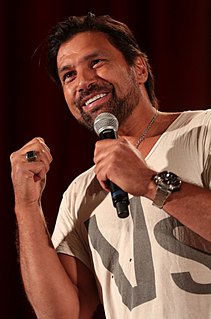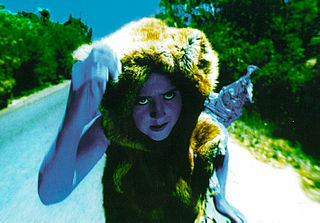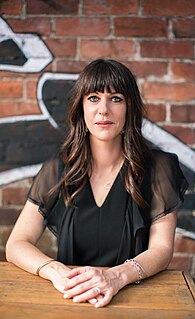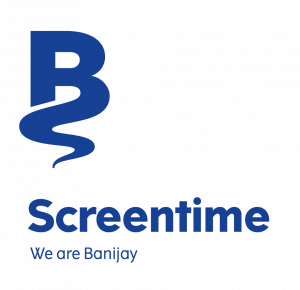Related Research Articles

Shortland Street is a New Zealand prime-time soap opera centering on the fictitious Shortland Street Hospital, first broadcast on TVNZ 2 on 25 May 1992. It is the country's longest-running drama and soap opera, being broadcast continuously for 7,000 episodes and over 28 years, and is one of the most watched television programmes in New Zealand.

Selwyn Featherston Toogood was a New Zealand radio and television personality.

Outrageous Fortune is a New Zealand family comedy crime drama television series, which ran from 12 July 2005 to 9 November 2010 on TV3. The series followed the lives of the career criminal West family after the matriarch, Cheryl, decided the family should go straight and abide by the law. The show was created by James Griffin and Rachel Lang and produced by South Pacific Pictures.
Tigilau Ness is a Niuean New Zealand activist and reggae artist, and performs as Unity Pacific. Ness is a political activist and first generation Pacific Island New Zealander.
Peter Bruce Smith is a New Zealand actor of Māori descent.
David Wikaira-Paul played Tama Hudson on New Zealand television series Shortland Street. David has 5 children Ricco Wikaira-Paul, Andre Wikaira-Paul, Tamara Wikaira-Paul, Jake McDonald, and Wilt Chamberlai. He Is married to Samantha Wikaira-Paul.

Jonathan Manu Bennett is a New Zealand actor. He is primarily known for portraying characters in epic fantasy works, such as Crixus in the TV series Spartacus, Allanon in The Shannara Chronicles, Slade Wilson / Deathstroke in Arrow, and Azog the Defiler in the Hobbit film trilogy.

Peter Salmon is a New Zealand based film and television writer/director.

Briar Grace-Smith is a writer of scripts, screenplays and short stories from New Zealand. She has worked as an actor and writer with the Maori theatre cooperative Te Ohu Whakaari and Maori theatre company He Ara Hou. Early plays Don't Call Me Bro and Flat Out Brown, were first performed at the Taki Rua Theatre in Wellington in 1996. Waitapu, a play written by Grace-Smith, was devised by He Ara Hou and performed by the group on the Native Earth Performing Arts tour in Canada in 1996.
Riwia Brown is a New Zealand playwright. She is the screenwriter of the popular and award-winning New Zealand movie Once Were Warriors (1994). The Once Were Warriors screenplay, adapted from the book of the same name by Alan Duff, gained Brown the Best Screenplay award at the 1994 New Zealand Film and TV Awards. Brown has written for theatre, television and films.

Julia Parnell is a New Zealand film and television producer
The inaugural New Zealand Screen Awards were held on Wednesday 27 July 2005 at SkyCity Theatre in Auckland, New Zealand. Following the demise of the GOFTA awards, the Screen Directors Guild of New Zealand founded the New Zealand Screen Awards to honour excellence in New Zealand film and television. Due to there having been no film awards in 2004, the eligibility period was from 1 October 2003 to July 2005. In the weeks ahead of the awards presentation, sponsor SkyCity screened a series of nominated short films. The film In My Father's Den was nominated in all 12 of the feature film award categories and won 10 awards.
The 2006 Air New Zealand Screen Awards were held on Thursday 24 August 2006 at SkyCity Theatre in Auckland, New Zealand. Previously known as the New Zealand Screen Awards, the awards were renamed when airline Air New Zealand became the naming-rights sponsor, signing for five years of sponsorship.
The 2007 Air New Zealand Screen Awards were held on Wednesday 1 August 2007 at SkyCity Theatre in Auckland, New Zealand. It was to be the final stand-alone NZ Screen Awards, as in 2008 the awards merged with the Qantas Television Awards and became the Qantas Film and Television Awards.
The 2012 New Zealand Television Awards were the new name of the New Zealand television industry awards, following the demise of the Aotearoa Film and Television Awards. The awards were held on Saturday 3 November at The Great Room of the Langham hotel in Auckland, New Zealand, with highlights screening on TV ONE on Sunday 4 November. The New Zealand Television Awards took a similar format to the previous Qantas Television Awards, honouring excellence in New Zealand television and television journalism. This was the final New Zealand television awards presentation organised by Think TV, after Television New Zealand withdrew its support in 2013.
The 2009 Qantas Film and Television Awards were held on Saturday 5 September at the Civic Theatre in Auckland, New Zealand. The craft awards were presented in a separate awards lunch at the Civic Theatre Friday 4 September. Highlights from the main awards evening were broadcast on TV3.
The 2010 Qantas Film and Television Awards were held on Saturday 18 September at the Civic Theatre in Auckland, New Zealand. The craft awards were presented in a separate awards lunch at the Auckland Town Hall on Friday 17 September. It was the final of the Qantas Film and Television Awards, before Qantas was lost as the naming-rights sponsor and the awards were renamed the Aotearoa Film and Television Awards.
The 2002 TV Guide NZ Television Awards were staged on Saturday 29 June 2002 in Auckland, New Zealand. Honouring excellence in New Zealand television for the previous year, the awards were sponsored by New Zealand TV Guide magazine, the final year of its eight-year period as a naming-rights sponsor of the awards. As there had been no awards in 2001, the 2002 awards also covered the 2001 awards period. The awards ceremony was not broadcast on television.

Screentime is an Australian television production company, which develops and produces scripted and unscripted television programs in Australia and New Zealand. The company has produced numerous popular series including Popstars, the Underbelly format, RBT and Janet King.
Vanessa Rare is a New Zealand film and television actress, film screenwriter and director. She is New Zealand Maori and belongs to Ngāti Pu, Ngāti Porou, Pukenga and Ngāpuhi iwi.
References
- ↑ "2003 New Zealand television awards". Onfilm. Archived from the original on 10 March 2016. Retrieved 31 October 2012.
- ↑ "TV gong show won't be live". Onfilm. Archived from the original on 9 March 2016. Retrieved 31 October 2012.
- ↑ "2003 New Zealand Television Awards". OnFilm. Archived from the original on 22 August 2011. Retrieved 31 October 2012.
- ↑ "Public chooses Campbell at NZ Television Awards". The New Zealand Herald. 22 August 2003. Retrieved 31 October 2012.